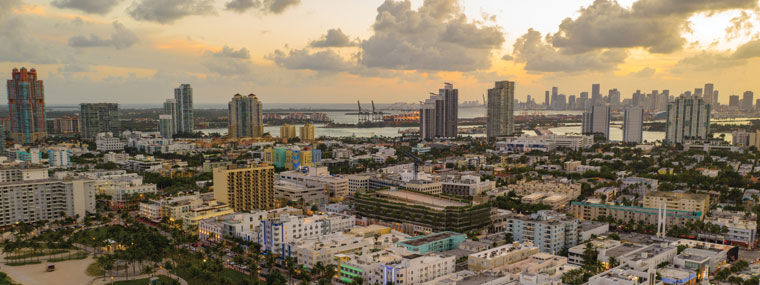
New Miami-Dade County Ordinance Shortens 40-Year Recertification to 30 Years
By Roberto C. Blanch / Published September 2022

The tragic collapse of the Champlain Towers South condominium has prompted various changes statewide in regards to condominium safety reforms. Earlier this year, Florida passed its first-ever statewide condominium safety reform bill, and on June 1 Miami-Dade County’s Board of County Commissioners released an ordinance establishing even more stringent procedures for the recertification process.
The new county ordinance calls for the following:
- All buildings (except single-family homes, duplexes, and structures housing fewer than 10 people) must undergo recertification upon reaching 30 years of age and every 10 years thereafter.
- Local jurisdictions will provide buildings with a courtesy notice one and two years prior to their recertification anniversary.
- Buildings will also receive a reminder 90 days before the report submission due date of recertification deadline.
- The same notice schedule applies for the 10-year incremental recertifications.
- Buildings and structures built from 1983 to 1992 must undergo recertification for their 30-year period on or before March 31, 2024. They are not subject to the courtesy notification requirement.
- Buildings built from 1983 to 1986 are exempt from the 30-year recertification requirement only if a 40-year recertification report for the building would be otherwise due before March 31, 2024, and such report is submitted in a timely manner.
- Within 90 days of the Notice of Required Inspection, a written report must be submitted to a building official certifying that the building is both structurally and electrically safe for continued occupancy. Submission of a report will also be deemed timely if submitted any time within two years before the building’s recertification anniversary.
- Buildings defined as “minor structures” must have their eport prepared by a professional engineer or architect registered in the State of Florida.
- Buildings greater than three stories or 50 feet in height must have the structural and electrical portions prepared separately by a professional structural engineer and a professional electrical engineer registered in Florida.
- A self-qualification letter must be included as part of the structural report attesting to the professional structural engineer’s experience in working with equivalent buildings.
- Associations for buildings that are declared unsafe are responsible for providing owners with a 24-hour written notice.
- Associations that fail to comply with the unsafe structure notice requirement will be liable for failure to provide such notice.
- Repairs deemed necessary by the professional engineer or architect must be completed 150 days from the date of notice.
- For repairs that require permits, buildings have 150 days from the date of notice to acquire necessary permits.
- The engineer or architect that performed the initial recertification must provide building officials a letter attesting that the building can continue safe occupancy during repairs every 180 days until repairs are completed.
- An amended recertification report must be submitted once all necessary repairs are finished.
- Penalties for failure to comply with the new law, such as authorizing building officials to disconnect electrical utilities for buildings whose safety is questionable, revoking written recertification reports that contain misrepresentations, and monetary fines in the amount of $200 per unit, an be imposed.
The complete ordinance is available at https://www.miamidade.gov/govaction/legistarfiles/Matters/Y2022/220166.pdf.
Roberto C. Blanch
Shareholder, Siegfried Rivera
Roberto C. Blanch is a shareholder with the South Florida law firm of Siegfried Rivera who is board certified as an expert in community association law by the Florida Bar. He is one of the firm’s most prolific contributors to its association law blog at www.FloridaHOALawyerBlog.com. The firm maintains offices in Miami-Dade, Broward, and Palm Beach Counties, and its attorneys focus on community association, real estate, construction, insurance, and bankruptcy law. For more information, call 1-800-737-1390 or visit www.SiegfriedRivera.com.




